There’s a lot to see and do in Lisbon. But if you decide you need some space from the hustle and bustle of Portugal’s most populous city, there are a handful of intriguing places for day trips outside Lisbon.
You can hit an off-the-radar beach, head to a hill town, see spots with Roman ruins, gawk at medieval walled cities, go wine tasting, and erstwhile industry towns that have been renovated into hip urban landscapes.
When you’re ready to flee Lisbon for the day, here are 7 places to consider for a great day trip.
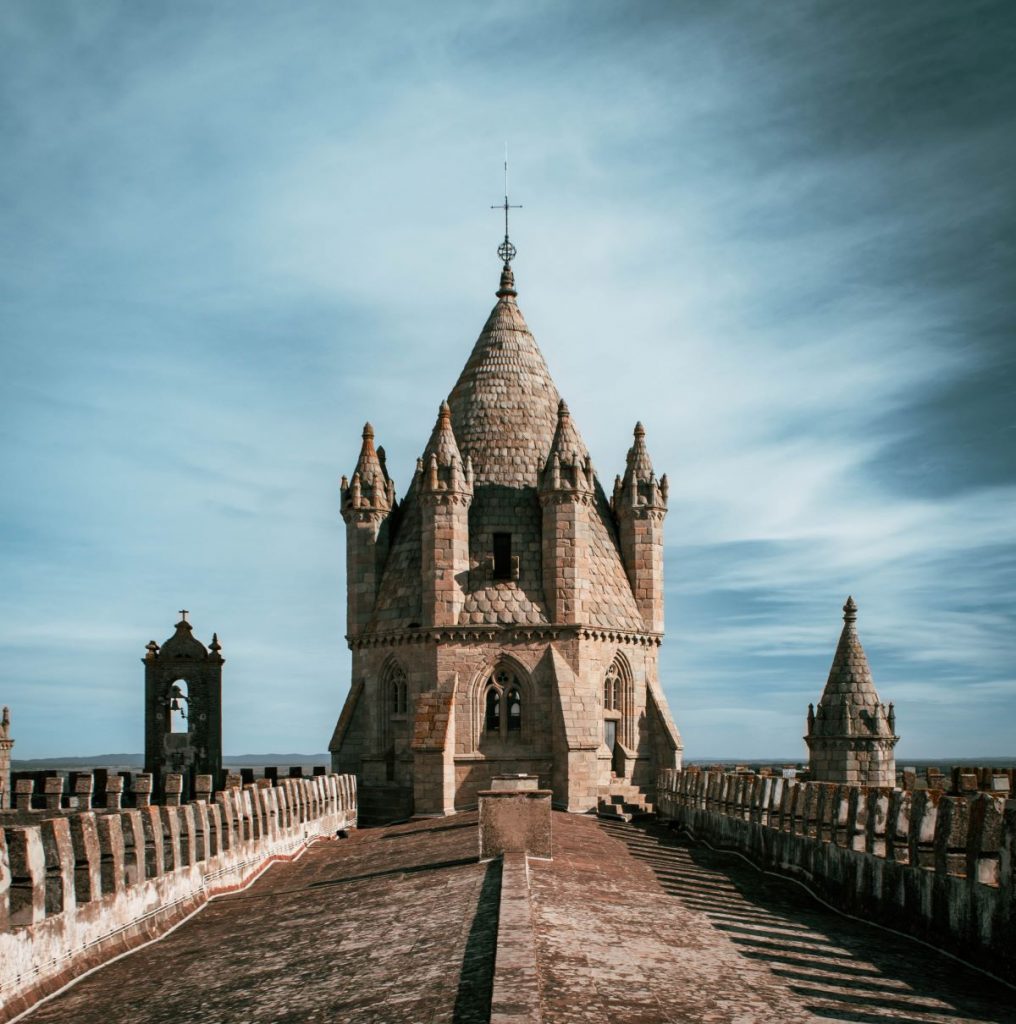
Sintra
Sintra is the most popular day trip from Lisbon. And for good reason. Aside from its geographical proximity and easy access via public transportation, Sintra sits on rolling hills and boasts candy-colored, ice cream sundae palaces and an imposing medieval castle.
Some places to be sure to hit include the 19th-century Palacio Nacional da Pena, Palacio Nacional de Sintra, and the imposing Castelo dos Mouros. The Quinta da Regaleira is a 19th-century palace that is also worth checking out. Adjacent to it, is the relatively off-the-radar Palacio Biester, a 19th-century palace with verdant botanical gardens to stroll in.
There’s enough to see and do in Sintra that would warrant extending the day trip into a two-or three-day trip.
How to get there:
- Sintra is just 30 minutes away by car or 40 minutes via train from Lisbon’s Rossio or Oriente railway stations.
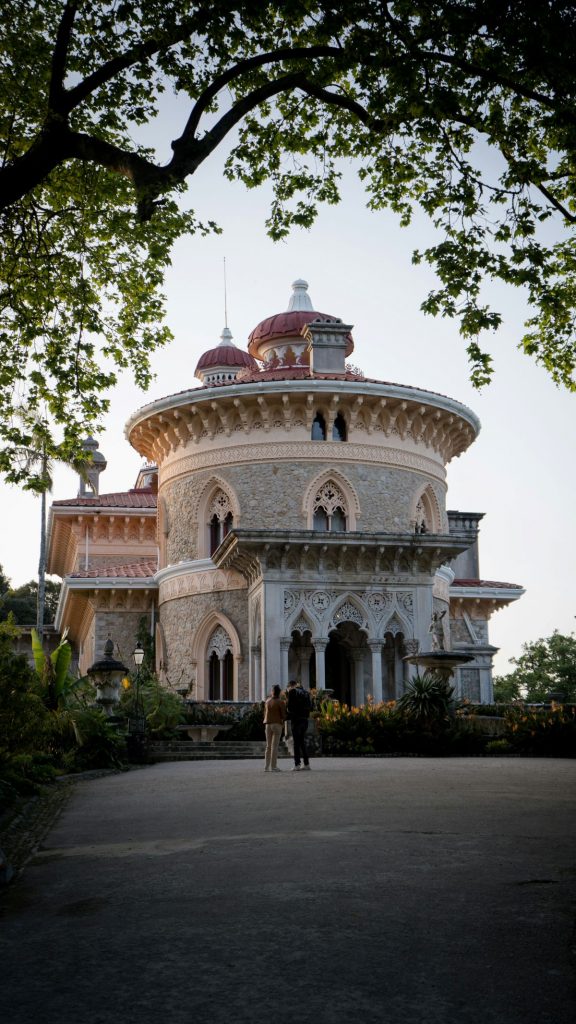
Évora
There are a few good reasons to point yourself to the charming town of Évora. Located in the region of Alentejo, 75 miles east of Lisbon, this densely packed town of about 53,000 denizens, is laden with interesting sites.
For starters, Roman ruins still stand in the center of town, creating a lovely historic ambience. But adding to that are plus-sized centuries-old churches, Baroque palaces, and a warren of narrow lanes in which to get lost.
For those who like a dose of macabre with their travels, head over to the church of São Francisco, where you’ll see one of the most memorable sites on the Iberian peninsula: a chapel that is stacked and decorated from floor to ceiling with human bones. A stark reminder of the impermanence of life, if there ever was one.
How to get there:
- Getting from Lisbon to Évora is easy. Frequent buses depart from the Sete Rios and Oriente stations in Lisbon.
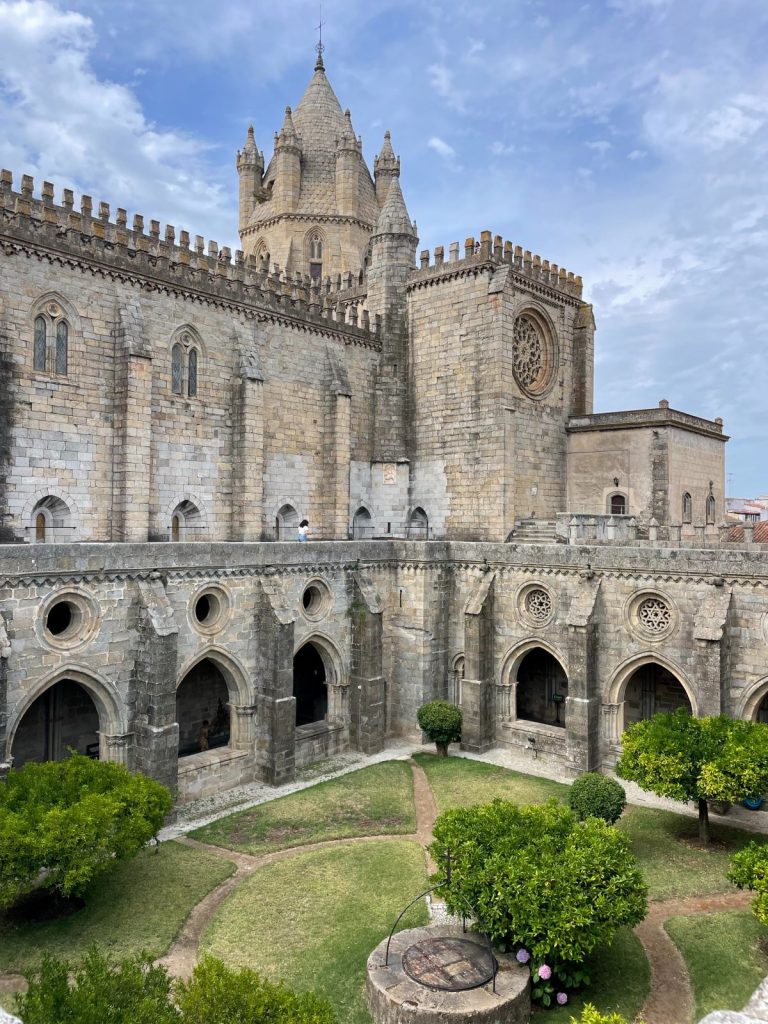
Óbidos
Fifty miles north of Lisbon is Óbidos, a bewitching walled, hilltop town that is often said to be the most beautiful town in Portugal. The domain of the Celts, Romans, Visogoths, and Moors of previous millenia, this town of 11,000 people is crammed with whitewashed houses flanking narrow cobblestone streets. It’s an ideal medieval town to spend a few hours just wandering.
You can walk the medieval walls to get some spectacular sightlines and then take a break in one of the town’s many bars to have a glass of ginjinha, a liqueur made from sour cherries that is part of the town’s culinary heritage. The 13th-century castle, the highest point in the town, is now a four-star hotel and you can take a look inside by wandering into the lobby.
Óbidos is also a mecca for literary lovers. The town’s streets are crammed with bookshops, some of them existing since the 18th century.
How to get there:
- From Lisbon, buses depart from Campo Grande station and take about an hour and 15 minutes.
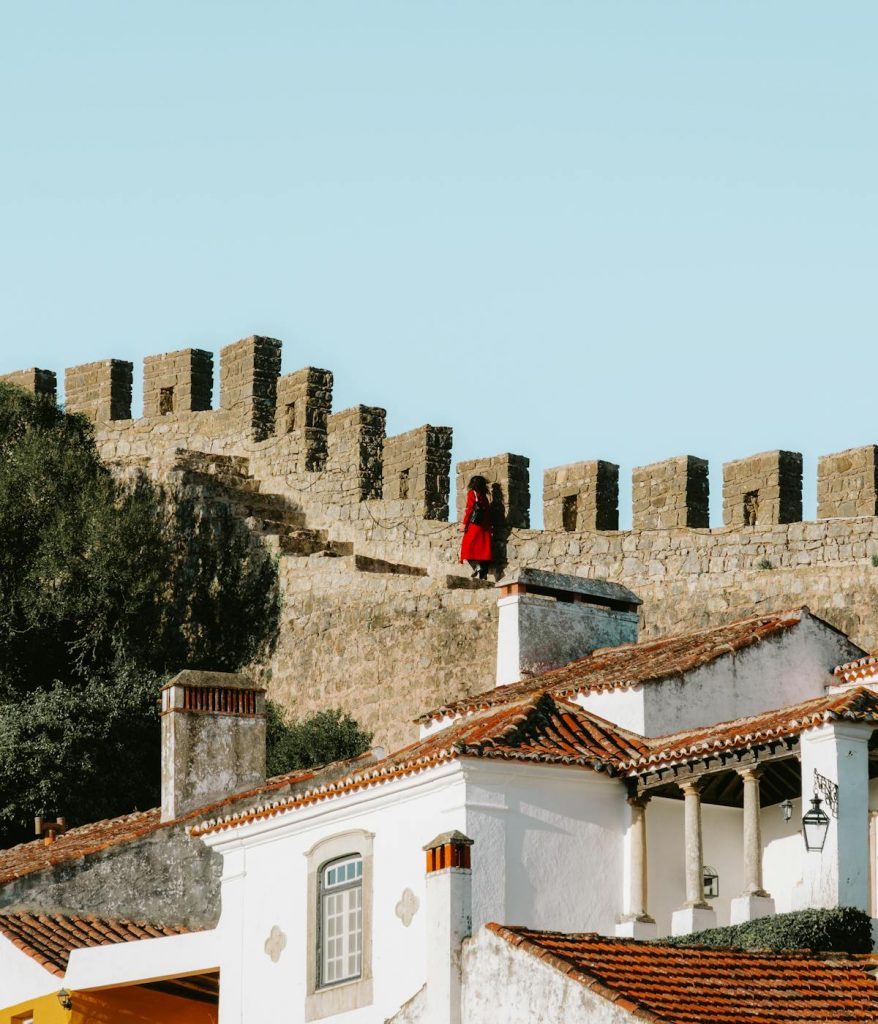
Fátima
The town of Fátima, with a population of 13,000 people, boasts fossilized dinosaur prints, ancient caves to explore, and grand churches to gawk at.
But the main reason people gravitate here, located about 75 miles north of Lisbon, is because of what (reportedly) took place on May 13, 1917 when three children, Lucia dos Santos, Francisco Marto and Jacinta Marto claimed that they had apparition of the Virgin Mary. The children would go on to get visitations from the Virgin 5 more times until October of that year.
By that point, Fatima had become a pilgrimage site for Catholics. And today it still very much is, as the Vatican has confirmed the sightings as miracles. You don’t have to be religious to experience the spectacle that is Fatima. It’s a fascinating place, whether you believe in miracles or not.
How to get there:
- Direct buses to Fatima depart from Sete Rios in Lisbon.
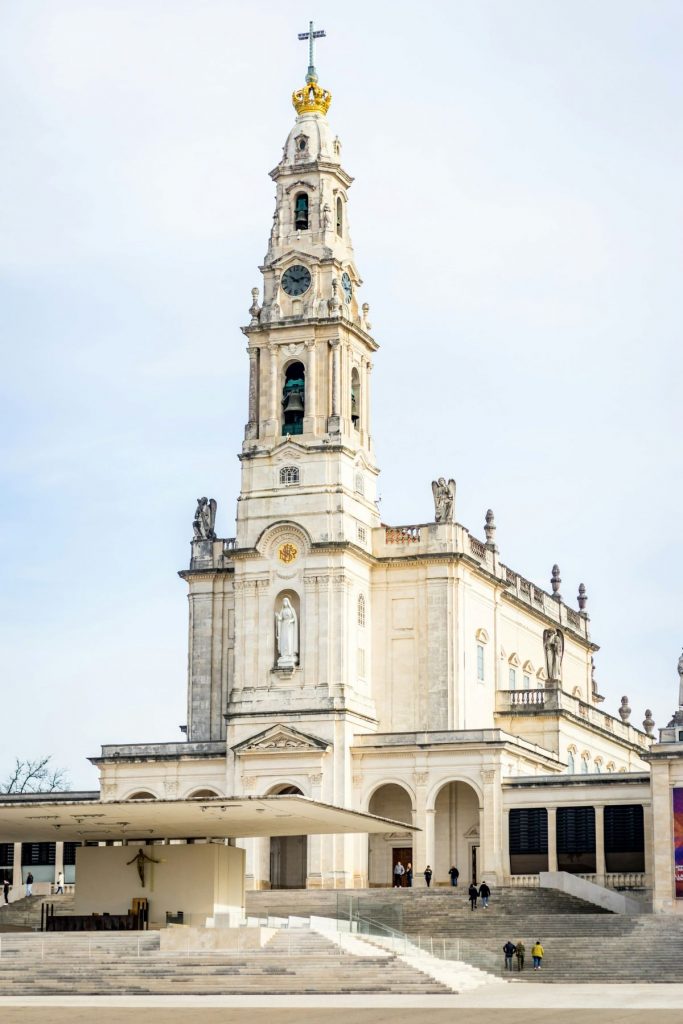
Cascais
Just 17 miles west of Lisbon, Cascais might be the most accessible day trip from the Portuguese capital. Since 1870, Cascais has been a popular upscale seaside resort for tourists and locals.
The city boasts a number of art galleries and museums. The compact center of town has a warren of narrow streets that are crammed with cafes and fancy boutiques. But the real reason to venture here from Lisbon is for the long sandy beaches that hug up to the coastline.
For those more interested in surfing than sunbathing, you’re in luck. Cascais is one of the best places to catch a wave in Portugal and there are plenty of places along the beach to rent a surfboard.
How to get there:
- Getting to Cascais from Lisbon is very easy. Trains depart Lisbon’s Cais do Sodré station every 20 or so minutes and the coastal journey takes about 30 minutes.
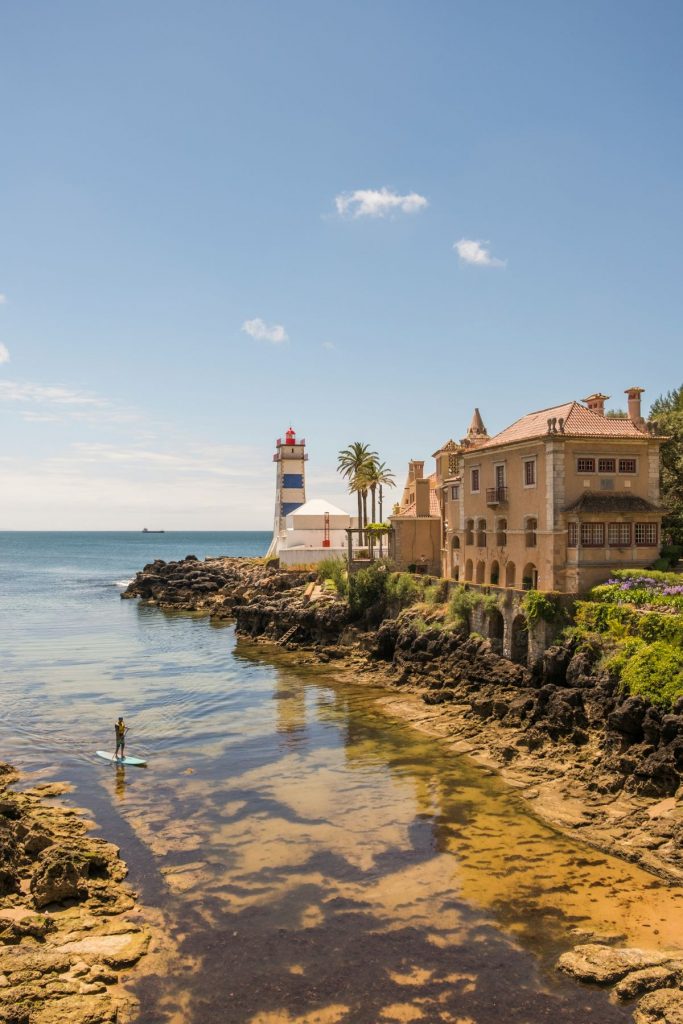
Arrábida
Just 20 miles south of Lisbon is Arrábida, a national park and also one of Portugal’s great wine regions. There are a handful of wineries to visit while here, including Quinta do Piloto and Ribafreixo. Not far from Arrábida is the hilltop medieval town of Palmela that is worth exploring.
And if you’re more of a sun, sea, and sand person, the coast along the park, near Portinho da Arrábida, offers pristine beaches.
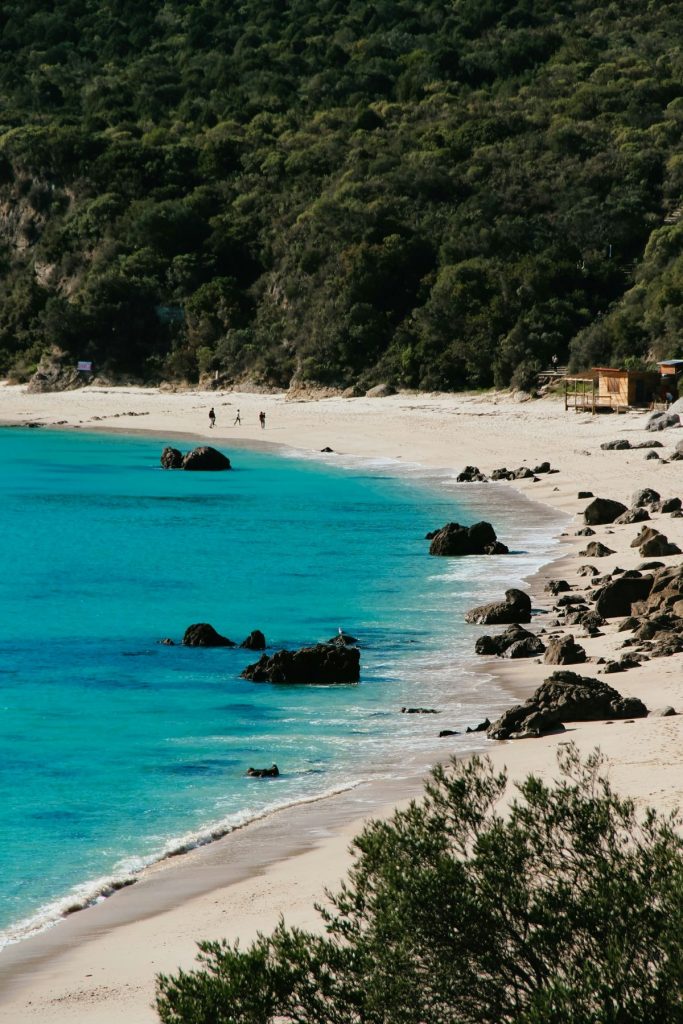
Nazaré
About 70 miles up the Costa de Prata (the Silver Coast) from Lisbon is the charming, beachside ancient town of Nazaré. This seaside village of 10,000 denizens was an historic fishing town that makes more of its money from tourism these days.
It has a number of things that make it worthy of spending a day here. For starters, the beaches are gorgeous and comfortable. Surfing conditions are optimum.
There aren’t any stop-you-in-your-tracks sites to see here. Nazaré is more about taking in the vibe, sitting on the beach, riding the 19th-century funicular, snacking on seafood at a beachside restaurant, and people watching. If you’re lucky, you’ll gain a glance or two at some of the local women clad in colorful traditional clothes.
How to get there:
- Take the bus to Nazaré from Lisbon’s Sete Rios station.
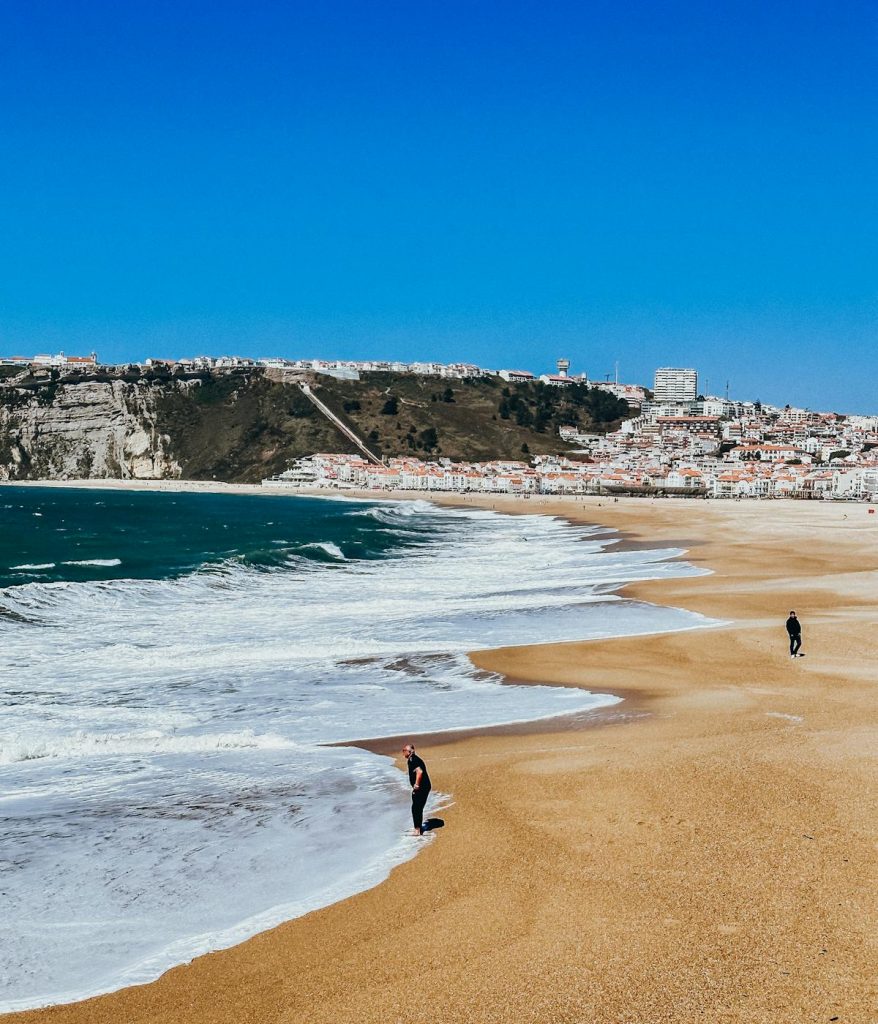
Explore the magic of Sintra’s palaces and the beauty of Cascais without the stress! Our Sintra and Cascais Day Trip takes care of all the details, so you can relax and enjoy expert storytelling, stunning scenery, and an unforgettable day.
